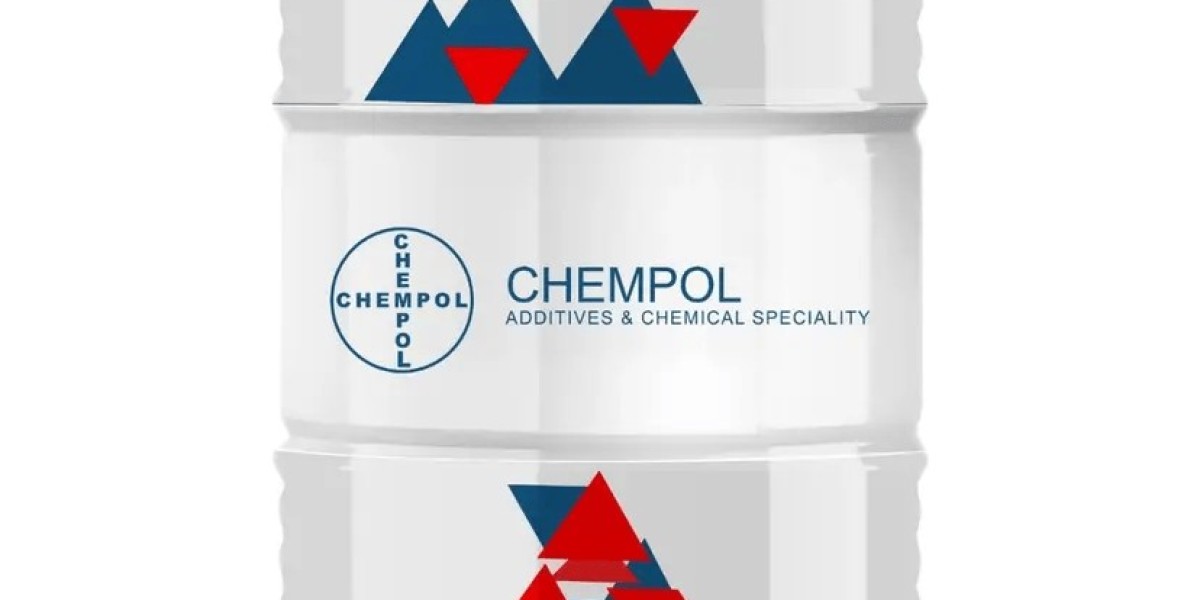The modern engines in the UK are experiencing higher stress levels than ever before. Cars have become quicker, engines have been downsized but are more powerful, and drivers are demanding longer oil life and lower fuel consumption. A standard engine oil by itself is not enough to meet these requirements. This is where lubricant additives play a major role. They enhance oil performance, decrease wear, dissipate heat, and generally, they are the engines' helpers. The choice of additives is the most important step in engine protection and long-term efficiency.
Quite a number of drivers and fleet managers in the UK have turned to oils containing synthetic oil additives. These additives fortify base oils, thus enabling them to operate under extreme heat, heavy load, and long drives. At the same time, they make engines cleaner and less fuel-consuming. The use of premium engine oil additives can only be beneficial to the engine in terms of life, performance, and efficiency.
Why Lubricant Additives Are Essential
Today, engines operate under higher pressures than those of the past. Basically, engines have parts that move faster, generate more heat, and are subjected to heavy loads. Oil without lubricant additives cannot fully protect these parts. Lubricant additives are chemical compounds added to oil to improve its performance. These compounds help maintain the oil at the required thickness, reduce friction, protect surfaces, and regulate deposits.
Additives give oil the ability to protect engine parts even under hard conditions. They prevent sludge formation, reduce oxidation, and enable engines to run smoothly for longer. UK cars are subjected to heavy city traffic with frequent stopping and starting, long journeys on the motorway, and cold winters. High-quality engine oil additives make sure engines stay safe and run well under all these conditions.
Friction Modifiers for Smooth Operation
Friction between moving parts generates heat and can cause wear. Friction modifiers reduce metal-to-metal contact, letting parts slide easily. This helps engines run cooler, lowers energy loss, and improves fuel efficiency.
Modern engines with tight tolerances benefit most from friction modifiers. Many UK drivers notice smoother starts, quieter engines, and better fuel use when using oils with these additives. When combined with synthetic oil additives, friction modifiers form a strong protective layer that stays active even at high temperatures and under heavy loads.
Friction modifiers also help in stop-start city traffic, where engines face frequent speed changes. They reduce stress on pistons, bearings, and valves. Over time, this keeps engines cleaner, quieter, and more efficient.
Anti-Wear Additives for Engine Longevity
Anti-wear compounds are another vital type of engine oil additives. They form a thin protective layer on metal surfaces to prevent direct contact between moving parts. This reduces scoring, pitting, and abrasion.
Critical engine parts like camshafts, crankshafts, and valve trains benefit from anti-wear additives. Vehicles in cities with frequent stopping and starting see more wear. Oils with anti-wear additives protect these parts and help engines last longer.
Anti-wear additives also slow oil breakdown under high heat. Oil that keeps its strength protects engines better and lasts longer. This reduces maintenance costs for drivers and fleet owners.
Detergent and Dispersant Additives Keep Engines Clean
Clean engines work better and last longer. Detergents neutralise acids formed during fuel combustion, while dispersants keep soot and dirt in suspension so it can be filtered out.
In the UK, many cars do short trips or start in cold weather. This can leave unburned fuel and deposits in the engine. Oils with strong detergent and dispersant properties prevent these deposits. Pistons, rings, and valves remain clean, helping the engine run smoothly.
When used with synthetic oil additives, these compounds create an oil that not only protects but also cleans. Clean engines have better performance, lower fuel use, and longer life.
Oxidation and Thermal Stability Additives
Engines produce heat, and oil is bound to deteriorate over time. Eventually, the product of this reaction can be sludge, varnish, or even thinner oil. Oxidation inhibitors are lubricant additives that help slow down the breakdown process. When the oil is heated, thermal stability additives keep their protective power.
Engines in the UK are exposed to different weather conditions and long motorway journeys. Oxidation and thermal stability additives in the oil make it last longer and thus provide better protection for the engine. The frequency of oil changes is also reduced, which is a saving of money and time.
Corrosion and Rust Protection
Rust and corrosion may result from moisture and combustion by-products. Corrosion inhibitors are one of the engine oil additives that help metal surfaces by creating a thin protective layer. This layer prevents water and oxygen from attacking engine parts.
Rust can harm essential parts such as bearings, valves, and cylinder walls. The use of oils with corrosion inhibitors helps in preventing such damage. When used in conjunction with synthetic oil additives, they offer excellent protection under various driving conditions, such as cold and wet winter or hot and humid summer days.
Viscosity Modifiers for Consistent Oil Flow
Viscosity modifiers are components that enable oil to keep the appropriate thickness or consistency under temperature changes. The oil has to be thin enough to allow cold starting of the engine, but at the same time, it should be thick enough to protect the parts when they are hot.
The UK experiences a range of temperatures, from cold winters to warm summers. Oils with viscosity modifiers can maintain a protective layer of the same thickness. They are the ones that cause the least friction, wear, and energy loss. If combined with engine oil additives, they will provide consistent lubrication, resulting in smooth engine operation throughout the year.
Another function of viscosity modifiers is that they reduce oil burn in high-mileage engines. Older cars and those with higher engine wear benefit the most from this, as it improves their reliability and efficiency.
Extreme Pressure and Anti-Foaming Additives
Some motors are carrying heavy loads and operating at high speeds. Extreme pressure (EP) additives help the oil form a strong protective layer to prevent metal-to-metal contact. Anti-foaming agents prevent bubbles from forming in the oil, which diminishes its protective power.
An oil with EP and anti-foaming additives, combined with synthetic oil additives, can protect the engine under heavy load, during long journeys, or at high speeds. This results in a longer engine lifespan and stable performance.
These additives, which reduce wear and help prevent damage, are essential for trucks, vans, and performance vehicles in the UK that operate in tough conditions.
Choosing the Best Lubricant Additives
To use the right oil, you have to choose the correct additive package. A modern oil should have friction modifiers, anti-wear compounds, detergents, dispersants, corrosion inhibitors, viscosity modifiers, and anti-foaming agents in its composition.
Firstly, a high-quality engine oil additive package helps the engine perform better, reduces wear, and keeps fuel consumption steady. An oil with synthetic oil additives can absorb heat, facilitate engine start-up in cold weather, and keep the engine clean for a long service life.
Drivers in the UK get the maximum benefit from such oils in city traffic, on motorways, and on long trips. Fleet managers experience lower maintenance costs and longer engine life. The correct additive package keeps performance smooth, efficient, and reliable.
Conclusion
Good lubricant additives represent the lifeline of modern engines in the UK. In short, one can sum up their functions as friction modifiers, anti-wear compounds, detergents, dispersants, corrosion inhibitors, viscosity modifiers, and anti-foaming agents, which all combined protect engines and enhance performance.
Oil additives are the heroes behind the scenes, keeping the engine clean, free from wear, efficient with fuel, and durable. The same goes for synthetic oil additives that enhance these benefits, enabling oil to withstand high temperatures, high pressure, and long distances.
By selecting oils with the appropriate additive combination, one can ensure that engines will cope with the most severe conditions in the UK while still running flawlessly. The result is thus positive not only for the owners of private cars but also for the managers of fleets, in both cases, the correct decision is to incorporate the engine with additives that will eventually lead to fuel saving and longer service life at minimum cost. Today's sensible use of additives is the key to the longevity of engines in the future.








